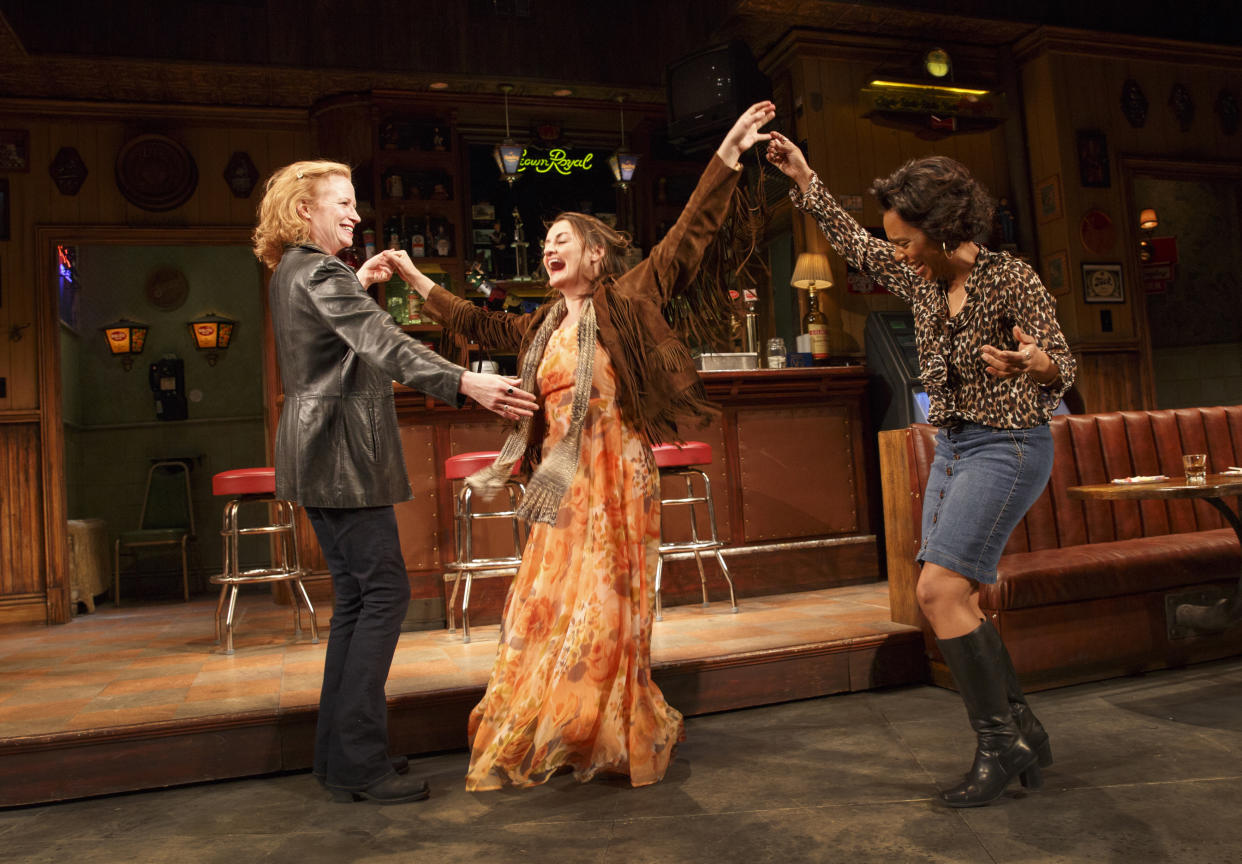American Politics Take the Stage in 'Sweat'

Lynn Nottage's new play Sweat first premiered Off Broadway in the fall of last year, just before the presidential election. And while Nottage-a Pulitzer Prize winner, Guggenheim Fellow and MacArthur "Genius"-couldn't have predicted the outcome of the voting, her work (the result of a commission from the Oregon Shakespeare Festival and Washington, D.C.'s Arena Stage) felt oddly prescient.
After all, Sweat follows the fate of two young Reading, Pennsylvania men and their families, whose lives are upended when changes come to the local steel-tubing factory which has long employed the town's residents. It's a stark, honest, and very human portrait of desperation and despondency in contemporary America, and one that finds Nottage, according to the New York Times, "writing at the peak of her powers."
On the eve of the show's Broadway debut-opening March 26 at Studio 54-Nottage spoke with Town & Country about the work.
This is a show that is very much about issues dominating the headlines these days, but clearly it's been a long time in the works.
For about two and a half years, I went back and forth between New York and Reading, Pennsylvania to interview people because I was really interested in the ways that economic stagnation was influencing American cities, in particular cities that had once been industrial powerhouses. In the midst of doing the interviews, I came across a group of locked-out steel works who I thought had a really compelling story. It's something I knew on an intellectual level was happening in the world, but really didn't strike me until I sat down with them-the extent to which these things were happening to people in America. And these were people who were, by and large, middle-aged white men who had thoroughly bought into the American Dream and didn't expect that overnight their lives would change so drastically.
Did you know from the get-go that this would be a play?
Some years ago, I received a commission from the Oregon Shakespeare Festival to write a play about an American revolution, and I knew specifically that I was interested in the way in which the loss of industry was impacting people in the late 20th century. I knew I wanted to somehow tackle that issue but I didn't know from what angle.

It seems like you were somehow tapped into a lot of what wasn't being talked about leading up to November's presidential election.
It's interesting because when I began interviewing people in Reading, and this was across racial lines, they felt invisible. They thought they were being ignored by their state governments, the federal government, and the media; like someone had decided these cities couldn't be resuscitated and so it was time to turn the gaze elsewhere. The vibe I got when I was talking to people was that they felt very ignored.
The people I interviewed-and this was across racial lines-they felt invisible.
Do you think the play feels different after the election?
It takes on a completely different resonance post-election. So many of the issues the play deals with are now in the headlines, but part of the reason I wrote the play is because I felt like poverty wasn't really part of the national discourse and that there were large swaths of the middle class that were being ignored. Part of me is glad that it's in the conversation now. Thematically, the president can be representative of a level of white disaffection that wasn't being anticipated by the media.
Moving from an Off Broadway run to one on Broadway, did the show change at all?
Broadway's never my end goal because of the plays I write. These are tough plays. Of course there's a lot of humor, but my goal is just to reach as wide an audience as possible however that happens. I think it's outstanding that a play like this has been embraced, but my goal is always just to be in conversation with as large a group as I can be.
You Might Also Like


